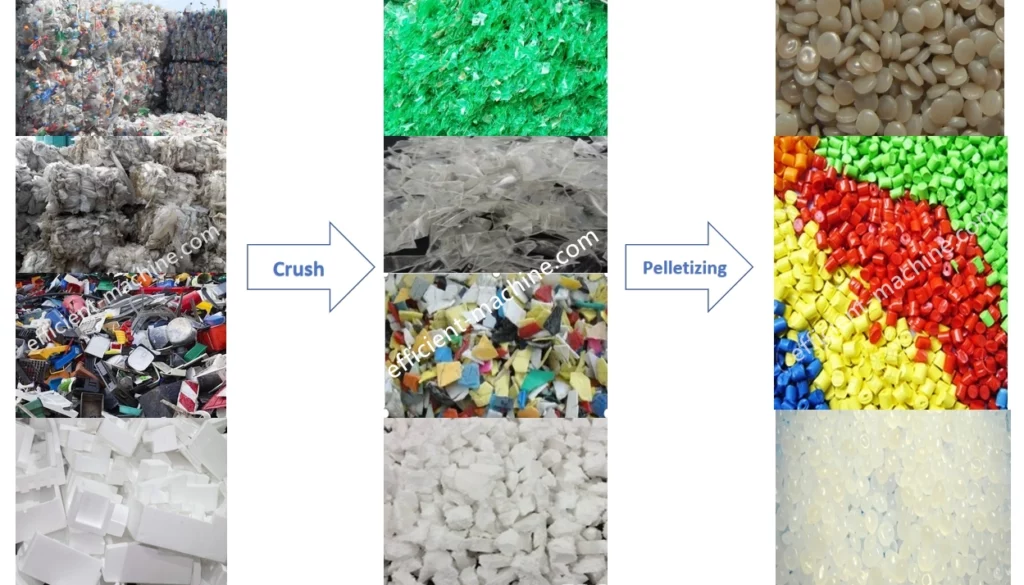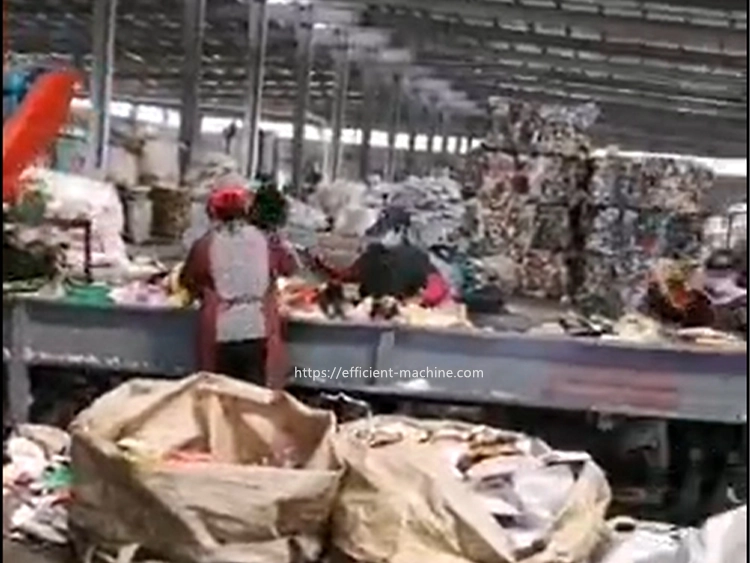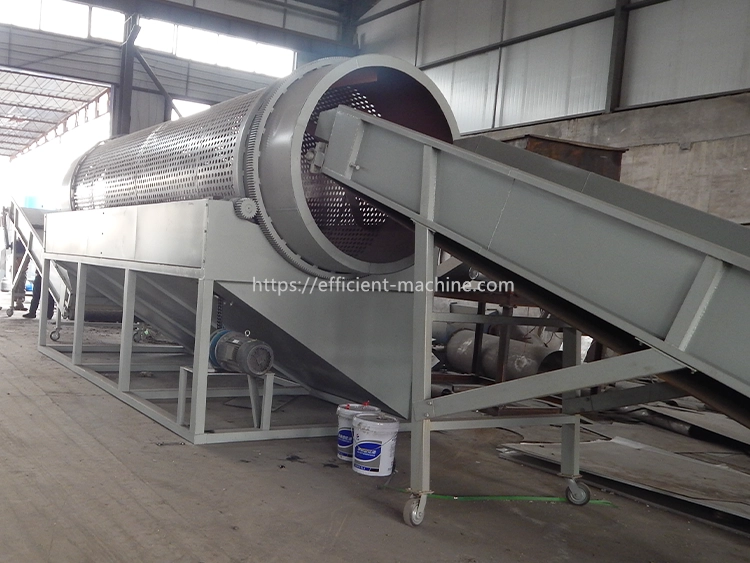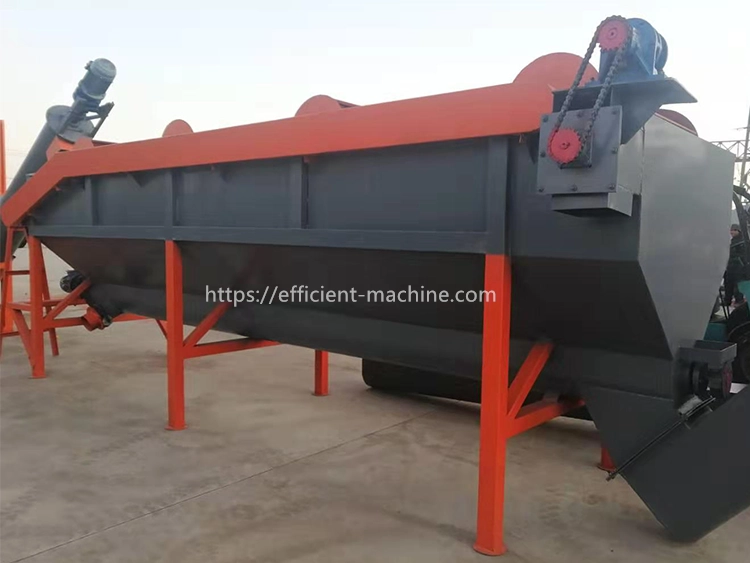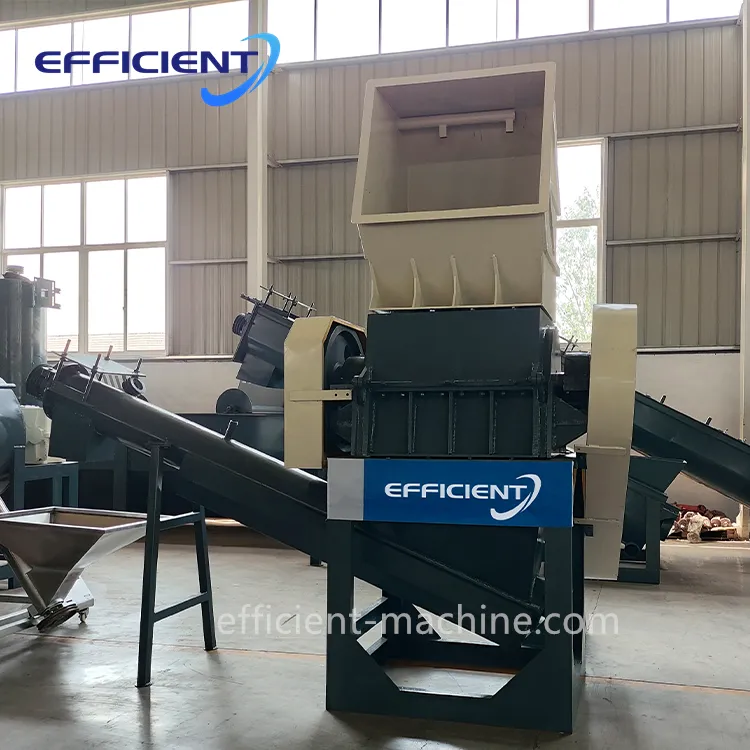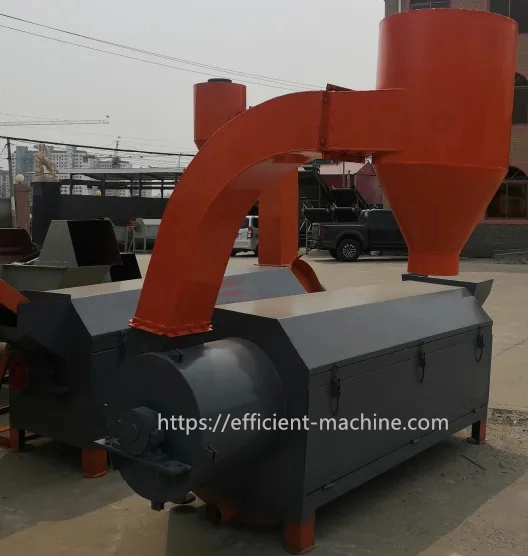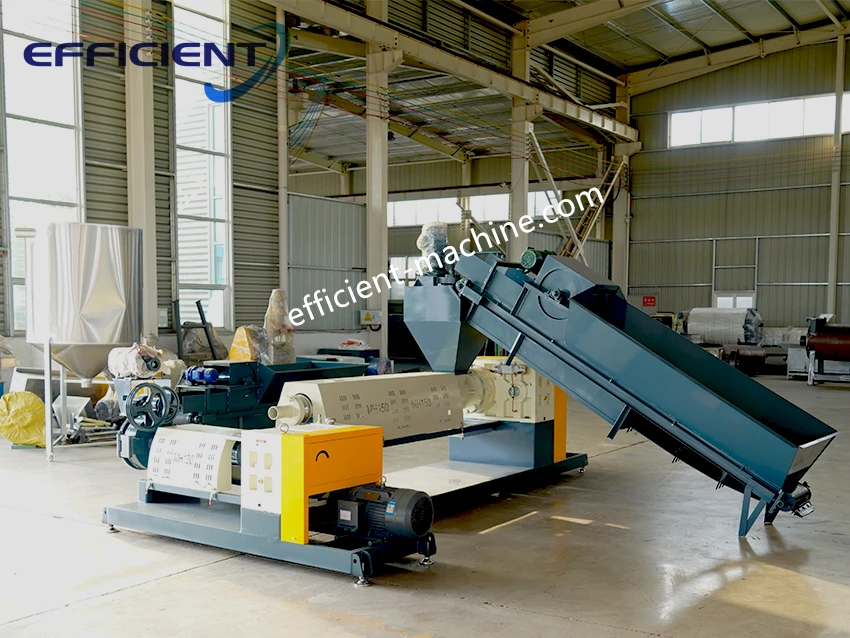Introduction de la machine de recyclage du plastique
Le recyclage du plastique est le processus de conversion des déchets plastiques en flocons de plastique propres ou en granulés de plastique recyclés. Les matières premières sont généralement des déchets d’emballages plastiques, des conteneurs en plastique, des palettes en plastique, des bouteilles en plastique, des sacs en plastique, des films plastiques, etc.
Les machines de recyclage du plastique sont souvent utilisées dans plusieurs industries pour recycler différents types de plastiques. Ces machines sont efficaces et fournissent des produits de haute qualité avec moins de déchets. Le coût d'une machine de recyclage du plastique dépend de la capacité de la machine que vous souhaitez acheter, du matériau que vous souhaitez traiter, du degré de raffinement du traitement du plastique recyclé, etc.
Les machines de recyclage du plastique se présentent sous différentes formes et tailles, mais elles ont toutes une chose en commun : elles peuvent convertir les déchets plastiques mélangés en flocons de plastique propres ou en granulés de plastique recyclés.
Le recyclage des déchets plastiques en granulés de plastique recyclé présente plusieurs avantages pour les entreprises :
Cela réduit la quantité de déchets plastiques stockés sur place et le coût de leur élimination.
Il réduit les gaz à effet de serre générés lors du transport des déchets du site vers la décharge.
Il réduit la pollution causée par les camions transportant les déchets plastiques vers les décharges.
Réduction du gaspillage de ressources plastiques
Comment fonctionnent les machines de recyclage du plastique ?
Diverses machines de recyclage du plastique sont conçues pour broyer ou faire fondre vos déchets plastiques en petits morceaux afin qu'ils puissent être réutilisés pour fabriquer de nouveaux produits en plastique. Il existe aujourd’hui de nombreux types de machines de recyclage du plastique sur le marché. La fonction principale de notre machine de recyclage du plastique est de trier les déchets plastiques, de les nettoyer, de les broyer en flocons de plastique, puis de les transformer en particules de plastique recyclées.
Il existe de nombreuses façons de recycler le plastique. Le processus de recyclage peut varier en fonction du type de plastique recyclé, mais certaines étapes générales sont communes à toutes les méthodes de recyclage du plastique :
Collecte et distribution
Tri et classification
Le tri est le processus de séparation des différents types de plastiques en catégories afin qu’ils puissent être utilisés efficacement de différentes manières. Le tri peut impliquer du travail manuel ou des machines capables de séparer les plastiques en plusieurs catégories en fonction de la composition chimique, de la densité du plastique, de la couleur du plastique, etc. Les machines associées sont les trieuses de couleurs, les machines de tri/criblage, les tables de ramassage manuelles, les piscines de nettoyage, etc.
Lavage
Afin d'améliorer la qualité du produit final, des flocons de plastique ou des particules de plastique recyclées et de les vendre à un meilleur prix. Lors du recyclage des déchets plastiques, les déchets plastiques recyclés doivent être nettoyés pour éliminer toutes les impuretés qu'ils contiennent lors de leur traitement. Le nettoyage consiste à éliminer la poussière, l'huile, les adhésifs et les débris de la surface extérieure du plastique afin qu'il puisse être réutilisé en toute confiance sans laisser de contaminants.
Écrasement
Le plastique est ensuite introduit dans un broyeur de plastique, qui le décompose en morceaux plus petits. Ces petits morceaux sont plus faciles à retraiter et à réutiliser que les produits en plastique intacts. Les flocons de plastique broyés aident également au nettoyage et à la recherche des impuretés qui n'ont pas été éliminées, comme les impuretés métalliques.
Identification et séparation des plastiques
Les plastiques sont triés en fonction de leur densité, de leur épaisseur et d'autres caractéristiques à l'aide de divers tests. Par exemple : si les pellets sont plus légers que l’eau, ils flotteront ; si la densité des pellets est inférieure à celle de l'eau, ils seront plus lourds ; si les pellets sont plus lourds ou plus denses que l’eau, ils resteront au fond du réservoir.
Séchage
Le vent généré par la machine élimine l'humidité des flocons de plastique, réduisant ainsi la teneur en humidité afin qu'ils puissent passer à l'étape de traitement suivante.
Extrusion par fusion
Au cours de cette étape finale du processus, les flocons de plastique sont transformés en granulés de plastique recyclé utiles pour les fabricants. Les flocons de plastique sont fondus à l'aide d'un granulateur d'extrusion de plastique, puis extrudés en bandes de plastique, qui sont finalement découpées en granulés. Il convient de noter qu'il n'est pas toujours possible de combiner tous les types, classifications et qualités de plastiques dans une seule machine, de sorte que différents matériaux doivent être traités à l'aide de différentes machines.

